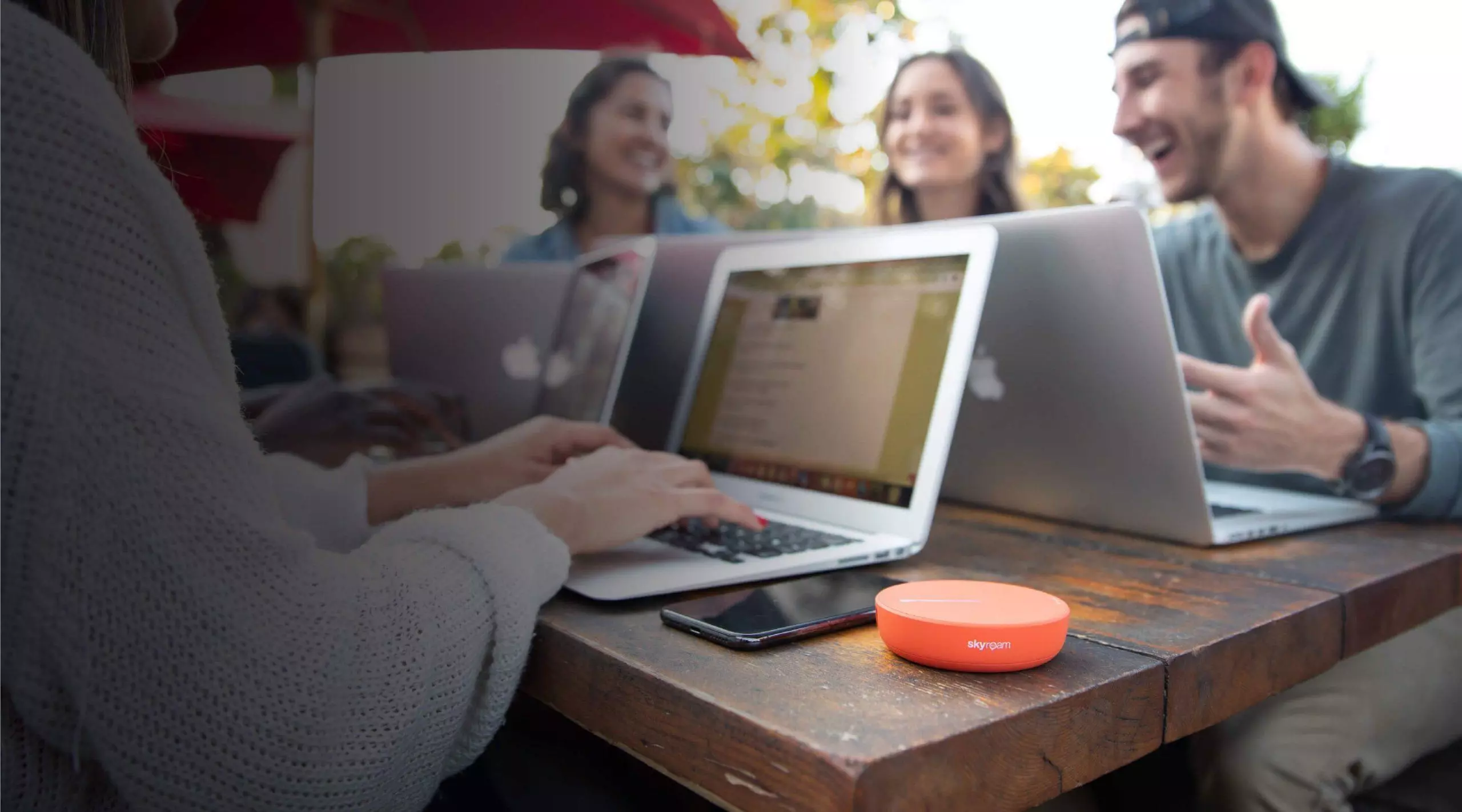
Money Milestones
Emergency Funds: Why You Need One and How You Can Build One
When we think about money milestones, they’re often exciting events such as buying a car or a home. However, one of the biggest money milestones that everyone should strive for might not be very exciting but it could be vital: having an emergency fund. In fact, one could argue that you aren’t really ready to purchase a house or start investing if you don’t already have a fully-funded emergency contingent in place.
On that note, let’s discuss why having an emergency fund is so important, how you can make building your fund easier, and a few other options for making your emergency money go further.
 Why You Need an Emergency Fund
Why You Need an Emergency Fund
Job Loss
Have you ever considered how you’d get by if you were to lose your job tomorrow? Despite the horror stories you may have heard regarding layoffs and corporate downsizing, many of us still aren’t at all prepared to face such a fate. While there’s rarely if ever a good time to lose your job, having an emergency fund in place before it happens can at least lessen the blow. Without those funds you may be forced to get a personal loan, which can get very costly depending on your credit score.
With a decent-sized emergency fund, you’ll be able to ensure that all of your bills stay current while you’re looking for a new job or perhaps trying to get your own venture off of the ground. On the contrary, the same situation sans emergency fund could set in motion a cycle of debt that can be hard to break even after you regain employment. Therefore, it’s always good to start thinking about the unthinkable and protecting yourself against financial disaster.
Major Expenses
Although job loss is often cited as the number one reason to have extra funds on hand, there are other major expenses that rise to the level of “emergency” as well. An all-too-common example is the astronomical medical bills that can result from illness or accident — even with insurance. Speaking of accidents, your vehicle may be vital to your ability to make money, thus you may consider dipping into your emergency fund were your current car to become unusable.
Other potential uses include significant and important home repairs, unforeseen relocation expenses, or really any large expense that you wouldn’t be able to afford under normal circumstances.
Small Unexpected Expenses (Rainy Day Fund)
In addition to having a proper emergency fund, you might also consider having a separate “rainy day fund.” The difference here is that your rainy day fund could be used for smaller but still unexpected bills such as car repairs, replacement appliances, or vet visits for your pet. Freelancers and other self-employed individuals might also want to consider having an additional fund dedicated to their tax obligations.
Ultimately, it will be up to you to decide if something is an emergency or if it’s just a rainy day, but having both types of funds on hand can help you clear all kinds of financial hurdles.
 The Basics of Growing Your Fund
The Basics of Growing Your Fund
How Much Should You Save?
Now that we’ve covered what types of events and expenses an emergency fund can help cover, the question becomes how much should your emergency fund hold? Unfortunately, there is no consensus on that one, but a commonly cited figure suggests you have enough to pay for three to six months worth of essential expenses. Keep in mind that the right number for you can also depend on your situation. For example, a single person with no dependents may be able to get by with less while a married person with children might want to hold onto a larger nest egg just in case.
Before starting your emergency fund, take the time to total up your essential bills and set a goal for how much you’ll need to save. Additionally, while it may seem wise to exceed this goal, be cautious about over saving and depriving yourself of other financial opportunities such as investing.
Automated Savings
Far and away my favorite plan for starting and building an emergency fund is via automated transfers. This will allow you to set money aside without even having to think about it and can also help you avoid temptation. To start, you’ll likely want to open a savings account where you can deposit the funds, although some experts like Dave Ramsey actual prefer using a checking account so you can easily withdraw what you need.
Once you have your target account in place, there are several options for how you can transfer funds and how frequent you can make your contributions. First, if you have direct deposit through your employer, you may be able to designate where you’d like your funds to go. In most cases, you can elect to put a certain dollar amount in your emergency fund account while placing the rest of your paycheck elsewhere.
Another potential solution is to set up automated transfers directly through your bank. Often times you can arrange to have your money move on a weekly, bi-weekly, or monthly basis, making it easy to start growing your fund. Similarly, apps such as Clarity Money, Long Game, Digit, and others can also help you set up routine or algorithmically-tailored transfers and make saving relatively painless.
“Found Funds”
Getting into the habit of contributing to your emergency fund regularly is a must, but boosting your efforts by adding some of your “found money” can also be extremely helpful. By “found money,” I mean cash you weren’t necessarily expecting or that doesn’t factor into your typical salary/ budget. This could mean a holiday bonus you receive from work, a tax refund (although you should really look into that), any inheritance, or just a gift. I’ve also heard of people using cash back tools such as Rakuten to contribute to their emergency funds. Heck, you could even resolve to put your credit card rewards toward you goal.
Before you grumble, I’m not saying you need to put the entirety of these financial blessings aside for emergencies. However, I’d say saving at least 20% is a good goal to shoot for — trust me, you won’t regret it.
 Advanced Options for Your Emergency Fund
Advanced Options for Your Emergency Fund
Online Savings Accounts
Did you know that not all savings accounts are created equally? While most people are likely inclined just to open an account at their local bank branch, the truth is you may be better off looking online instead. In fact, you could end up earning 100 times more with an Internet bank’s savings account than with a traditional bank’s version, allowing you to add a little extra to your fund.
Depending on a number of factors, your APY (annual percentage yield) on a typical savings account could be as low as 0.01%. By comparison, online banks like Ally, Discover, and Synchrony currently offer free savings accounts with APYs currently well north of 1%.
My personal favorite is SoFi Money, which also serves as a checking account (sadly, the current APY has been lagging due to the Fed’s recent rate cuts). Even though these rates are subject to change, you can see why these might be worth looking into. Best of all, these accounts still provide you with the liquidity you’ll need should you have to access your money, making them a good choice overall.
Money Market Accounts
As I mentioned, well-known financial guru Dave Ramsey suggests that emergency funds be placed into an account that can be accessed via checks or debit cards. The problem is that most checking accounts either don’t grant you any interest on your money or even go as far as to charge you for their services. However, with a money market account, you’ll have the interest benefits of a savings account but with check-writing power.
Before you go looking for a money market account to start your emergency fund, I should note that these types of accounts often require a higher initial deposit than a savings account would. Case in point, Discover requires a $2,500 deposit to open a money market account. Therefore it may make sense to start building your emergency fund elsewhere and then move it over once you reach the required threshold.
Certificates of Deposit
There’s a good chance you’ve heard about certificates of deposit (better known as CDs) but not really known what they were. Simply put, CDs are like time capsules for your money: you make a deposit, set the timer, and get to open it once time expires. In return for locking away your cash in such fashion, you can typically expect to earn an APY of 1%, 2%, or higher — with longer-termed CDs usually paying more.
Technically certificates of deposit don’t allow you to withdraw your money before the CD has fully matured (AKA the timer runs out). However, in most cases, you’ll just need to give up a portion of the interest you’ve earned in order to pull your money our early. Additionally, by setting up what’s known as a CD ladder, you can continue to earn interest while also having accessible money on a regular schedule.
Roth IRA
Finally, another interesting strategy for earning on your money, growing an emergency fund, and saving for retirement at the same time is to place a portion of your funds into a Roth IRA. This is something I hadn’t really considered but recently saw suggested by Miranda Marquit. Her logic is that you can use a Roth as a backup emergency fund because, since Roth contributions are post-tax, you can withdraw them without penalty. Additionally, while there is typically a penalty for withdrawing any gains before retirement age, she notes that these are usually waived if you are unemployed or are using the funds to pay medical bills.
To be sure, there’s a reason she says this plan should be used as a “backup.” On the one hand, investing your emergency fund can be risky. Meanwhile, tapping your IRA to use for emergencies can hurt your long-term revenue potential. That said, if push comes to shove, it’s nice to know that you may have another option available to you.
Mix and Match
Something else to note is that there’s no rule stating that you need to keep the entirety of your emergency fund in one place. Instead it may make sense to build in different layers of liquidity and accessibility. For example you might feel comfortable keeping a “rainy day fund” in your regular checking account or a savings account with the same bank, but place another chunk in an online bank account, and perhaps even set up a CD ladder with the rest. This way, you can balance the benefits of earning interest while still having peace of mind that you’ll be able to get to your money quickly when needed.
There’s really no overstating how important a money milestone having an emergency fund truly is. In some cases, it could make the difference between a quick recovery and a major setback. So if you still need to start or are looking to grow your fund, now’s the time to start automating your contributions, making additional transfers when possible, and perhaps considering some other options for earning on your money.
Leave a Reply
You must be logged in to post a comment.





There are certainly many ways on how and where to build your emergency fund but to be safe, make it at least six months of your expenses.
I set aside everymonth to be added to my emergency fund regardless of how much I already have saved. If you could make it 10 or more more months worth of your monthy expenses the better.
I found out that “found money” is the easier way for me to increase my emergency fund since found money is not included in my monthly budget.
Setting money aside now in a good economy is easier than it was 2 years ago. I simply could not do it 2 years ago, being a small business with employees you need every dollar. I have recently been in a position to start an emergency fund and it is very liberating, to know that todays sales are going to pay future hard times, it is a nice change of pace.